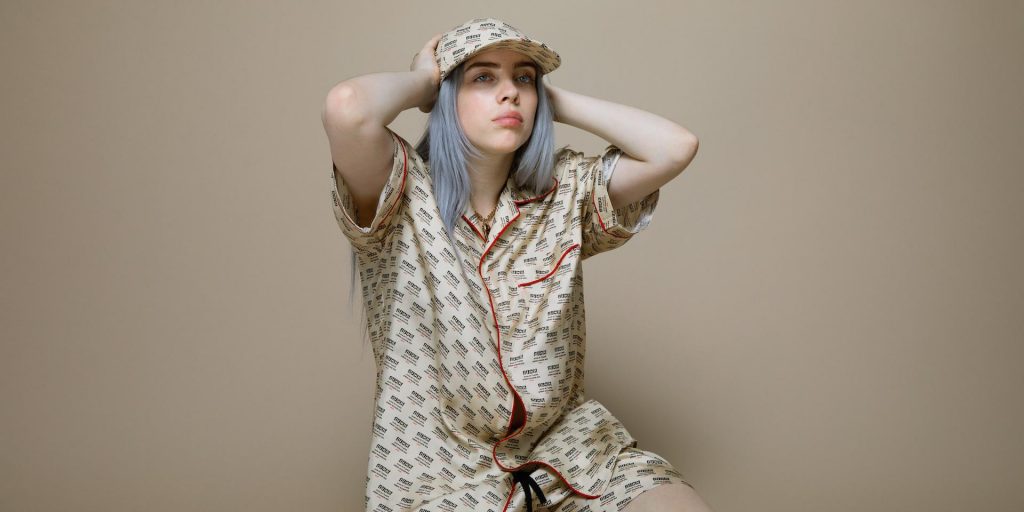
“I have taken out my Invisalign and this is my album,” 17-year-old pop star Billie Eilish declares between laughs and slobbers in the opening of her debut studio album, “When We All Fall Asleep, Where Do We Go?”
The album, released this past Friday, features 14 tracks with Eilish’s earlier releases including singles such as “when the party’s over,” “bury a friend” and “wish you were gay.” Eilish, who wrote and produced the tracks with her older brother Finneas, returns to the charts with her haunting yet stunning voice and anti-pop presence.
Alternating between dark, energetic tracks such as “bad guy” and “all good girls go to hell” and sullen yet powerful ones such as “xanny” and “wish you were gay,” Eilish takes her audience on a journey with many twists and turns in her album, offering an unpredictable listening experience and leaving them in constant anticipation of what’s to come next. The moody, volatile and truthful album gives the world a look into the pop star’s woes and vulnerabilities and falls in line with much of Eilish’s previous aesthetic: straying from the polished, idealized and heavily produced image of female teenage pop.
“when the party’s over,” Eilish’s third single of 2018 and the seventh track on the album, opens with a captivating yet eerie chorus of hums that is likely to get stuck on your mind. The song, which is about Eilish distancing herself from a partner, pulls listeners into a dreamlike trance with her voice, never singing above a whisper. This is juxtaposed with the lyrics and the melancholy piano, which ground the song and lament Eilish’s attempt to face the realities of her relationship.
Eilish started off the new year strong with the track “bury a friend,” which peaked at 14th on U.S. charts. The tenth track on the album starts with a masculine, growly voice calling out Billie’s name, followed by a strong beat and bass which conjures an anxious, uneasy and heightened feeling. In a 2019 Alternative Press article, Eilish said that she wrote from the chorus from the perspective of the monster under her bed, who poses the questions: “What do you want from me? / Why don’t you run from me? / What are you wondering? / What do you know?” The monster, who personifies one’s anxieties and doubts, plagues Eilish’s thoughts. Eilish admits that she is her own monster through the lines “Like I wanna drown, like I wanna end me / Bury a friend, I wanna end me.” The “friend” she would like to bury is actually herself, who invalidates her successes and poisons her mind with self-doubt.
“wish you were gay,” one of Eilish’s most recent releases leading up to her debut album, talks about getting over a boy who does not reciprocate her feelings. The track took over three years to debut once Eilish wrote the song, which she revealed on her Instagram. Her brother and co-producer, Finneas, shared in a YouTube miniseries, A Snippet Into Billie’s Mind, that he thought of incorporating a countdown throughout the lyrics, stating that the number sequence could draw on the idea of needing a certain number of steps to get over someone or to quit being addicted to them. Eilish references the trials and tribulations of modern romance, singing that “Our conversation’s all in blue / 11 ‘heys’,” giving a nod to the fact that she is the one always initiating conversation over iMessage, which labels the texts you sent as blue and the ones received as gray. The pain from rejection and unreciprocated feelings is made obvious through the raw vocals and acoustic guitar in the beginning, which build to a heavy and ominous electronic soundtrack and longing lyrics: “How am I supposed to make you feel okay / When all you do is walk the other way? / I can’t tell you how much I wish I didn’t wanna stay / I just kinda wish you were gay.”
Billie Eilish’s album explores various emotions and experiences which are often unsaid but are tenets of the teenage experience. From heartbreak and relationship issues to drug use and mental health, Eilish brings to light a side of her mind that is usually hidden from the rest of the world, using cryptic, unconventional beats that contrast with her classic indie vocals. “When We All Fall Asleep, Where Do We Go?” challenges the conventional boundaries and content of pop music and highlights topics that can be difficult to talk about. Though the album may not be for everyone, it will undoubtedly make its mark on the industry and will be loved by many.
4.5/5 stars


